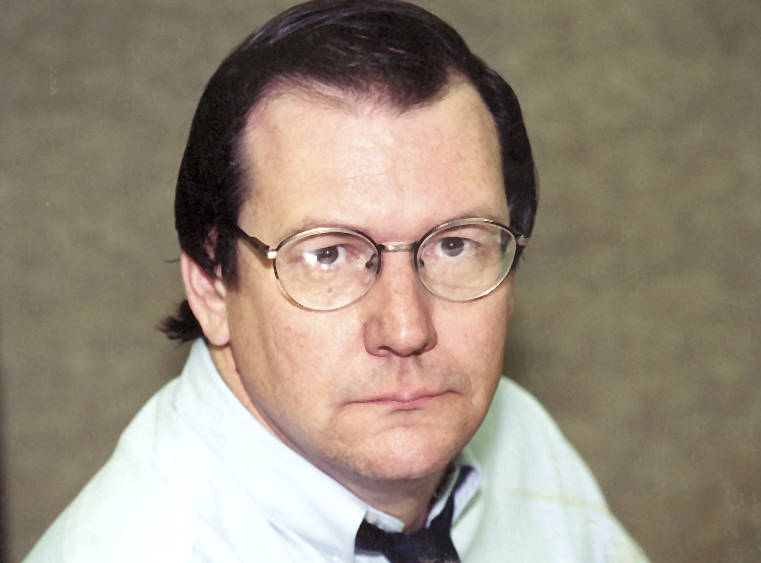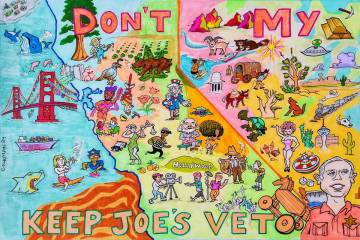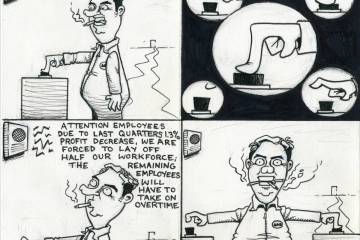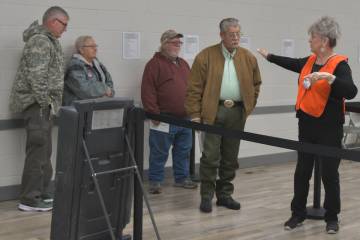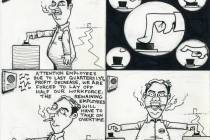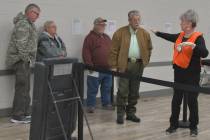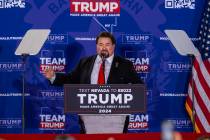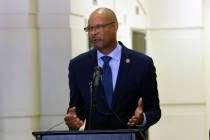Myers: Nevada’s insulation from the vagaries of abortion law
In 1972 the U.S. Supreme Court in its Roe v. Wade decision ruled that most state laws outlawing abortion violated a woman’s right of privacy. The decision swept out dozens of laws across the nation.
At the time, legislatives around the nation had been reviewing state abortion laws, trying to accommodate growing sentiment for abortion law reform. (In Nevada it provided an immortal bit of political lore—the tale of the state legislator who ran for the fire escape when it came time to vote on abortion.) When the Roe decision came down, that legislative activity mostly came to an end. Abortion supporters failed to secure their position in legislation in many states.
Over the thirty years since Roe, it has been one of the nation’s most contentious issues. Before she became a member of the U.S. Supreme Court, Ruth Bader Ginsburg was critical of the court’s Roe decision, saying that it had interrupted a political movement that was already underway in the nation’s legislatures.
“Roe … halted a political process that was moving in a reform direction and thereby, I believe, prolonged divisiveness and deferred stable settlement of the issue,” Ginsburg said.
She said further that if the court had been more restrained, it would have allowed the political process to work its will and made abortion reforms more palatable to the public.
“The ’72 judgment in Roe v. Wade declared violative of the due process clause of the Fourteenth Amendment a Texas criminal abortion statute that excepted from criminality only a lifesaving procedure on behalf of the pregnant woman. Suppose the court had stopped there, thus declaring unconstitutional the most extreme brand of law in the nation and had not gone on as the court did in Roe to fashion a regime blanketing the subject, a set of rules that displaced virtually every state law then in force. Would there have been the twenty-year controversy we have witnessed? A less encompassing Roe, I believe, might have served to reduce rather than to fuel controversy.”
By the time Ginsburg became a justice, that choice was gone, and her choices have been limited. So she has been a reliable vote in favor of the Roe decision.
With two more presumably anti-Roe justices on the court, abortion supporters and opponents are trying to judge their options and plan strategy. The South Dakota Legislature has enacted an outright ban on abortion. This has dismayed abortion opponents who fear such an extreme law will drive the court to uphold Roe, increasing its value as a precedent. (Even with the two new votes, there are still five out of the nine justices who have previously voted to support Roe.) In state after state, bills are being drafted.
At least one state is an island in this onrushing flood. Its law is insulated from being changed by the Legislature and would be unaffected by a Supreme Court decision overturning Roe. That state is Nevada.
In 1990 Nevada abortion supporters circulated a referendum petition to put the state’s abortion law on the ballot. That law had been enacted by the Nevada Legislature after Roe to bring the state statutes into compliance with the court ruling.
A referendum is unlike an initiative petition, which proposes new law. A referendum puts an existing law onto the ballot for a vote of approval or disapproval. Many abortion supporters, including the National Organization for Women, opposed the idea of the Nevada referendum. They recalled the 1978 Nevada ballot measure on the Equal Rights Amendment, which was defeated by Nevada voters. But Nevada feminists, led by Sen. Sue Wagner of Washoe County, went ahead and gathered the signatures and put the law on the ballot.
To the surprise of many Nevada state legislators who had always assumed the anti-abortion position was the popular one, Nevadans voted for Roe in a tremendous landslide, 201,004 to 117,707. Suddenly, politicians right and left were becoming abortion supporters.
Under Nevada election laws, once a law has received the public’s endorsement through the referendum process, that section of law cannot be changed or repealed without another vote of the public, so the Legislature can’t outlaw abortion in Nevada, no matter what the Supreme Court does.
And even if the court overturned Roe, that would merely return the issue to the states. In Nevada, that would mean the status quo—a state law embodying Roe.
Dennis Myers is an award-winning journalist who has reported on Nevada’s capital, government and politics for several decades. He has also served as Nevada’s chief deputy secretary of state.


